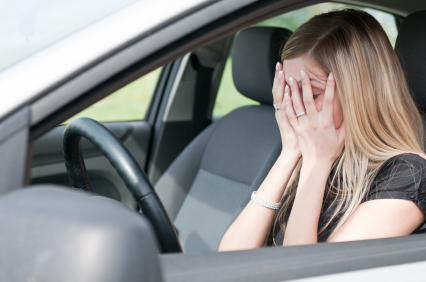
The term driver’s fatigue is used to describe when a driver becomes overly tired and has a hard time driving safely. While there are currently no specific laws that prohibit driving when overly tired, if you drive fatigued and subsequently cause an accident, you may be opening yourself up to criminal or civil liability.
Furthermore, according to California Vehicle Code Section 23103 VC, if a tired driver is driving negligently – as in not following the rules of the road – they can be tried for reckless driving.
What Can Cause Fatigue?
The biggest cause of fatigued driving is the lack of good sleep. Just getting into bed and closing your eyes at 10:00 pm is no guarantee of quality sleep. If there’s too much noise or light, you may never get into the deep sleep part of your sleep cycle, which is important for your body and mind to become fully rested.
Driving when you would normally be going to bed, even if you rested for the appropriate amount of time beforehand, can also leave you tired as you drive. Our bodies have an internal clock set by our habits. Breaking those habits, even just for one night, is no easy task and can have consequences, such as nodding off behind the wheel.
Finally, certain sleep disorders, such as sleep apnea, make it incredibly difficult to keep yourself awake and alert throughout the day. These disorders mean that, without medical help, it is unlikely you’ll be able to keep yourself from becoming fatigued. If you have a sleeping disorder, or suspect you do, speak to your doctor about what steps you can take to keep yourself and others safe on the road.
How Do I Tell if I Am Fatigued?
There are many warning signs that you are fatigued and should be off the road. The important part is listening to the signals your body is sending you. If you’re yawning excessively, feeling your eyes droop, or are having an increasingly hard time concentrating on the road and other vehicles around you, it may be safest to pull over. Fatigue can also present itself as irritability, as it is often harder to control your emotions when you are overly tired. This means if you find yourself becoming increasingly impatient or angry, you could need a good powernap.
Your body needs sleep, and, as with all things it needs, it will be sure to signal to you that you need to shut your eyes for a little while. Just be sure to shut them when you’re at home and not on the road.
Why Is It Dangerous?
Recent studies have shown that fatigued driving can be as dangerous as driving while under the influence of alcohol. Your reaction time slows, you become distracted easily, and you may even fall asleep at the wheel. Even just a moment with your eyes closed can spell disaster.
Fatigued driving increases your chances for a car crash, and thus increases your chances of injuring yourself and others. You don’t want to be responsible for someone else’s pain and suffering. Not only can that result in financial strain, but it will also result in an emotional strain as well.
How Do I Prevent Driver’s Fatigue?
The most obvious answer is getting a good night’s sleep before you head out onto the road. It isn’t always that easy, however. Schedules and work can be demanding. So, if you feel yourself becoming fatigued while you drive, take a break. You should be breaking at least every two hours you drive. Try to keep your driving down to ten hours a day. Take twenty-minute powernaps on the side of the road if you start to nod off. If possible, take public transportation or carpool.
If you or a loved one have been injured in a fatigued driving accident, you deserve compensation for your damages. There may be no laws against driving while tired, but people should still be held responsible for their actions. Contact the car accident lawyers at NordstrandBlack PC at (805) 962-2022 to put their decades of legal experience to work for you.